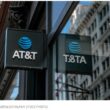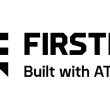T-Mobile gets aggressive with HSPA+ offering
Late last month, during the CTIA 2010 trade show in Las Vegas, T-Mobile held a press conference — a rare action from the industry’s most silent operator. But T-Mobile was tired of getting pushed around when it comes to its mobile broadband plans and its ability to serve the needs of customers on a nationwide basis.
At the outset Neville Ray, the operator’s senior vice president of engineering and operations, looked to combat the perceptions that T-Mobile has a weak 3G footprint in comparison with giants AT&T and Verizon Wireless. Ray said that T-Mobile now covers 206 million potential subscribers in the U.S., which would place the operator in an enviable position because it aggressively is rolling out a major software upgrade to its High-Speed Packet Access (HSPA) network, called HSPA+, throughout 2010. HSPA+, which is backward compatible with HSPA, theoretically offers peak data rates of 21 Mbps.
T-Mobile already has rolled out HSPA+ in Philadelphia and soon will light up New York; New Jersey; Long Island, N.Y.; Washington, D.C.; and Los Angeles, Neville said. New York already has live sites.
T-Mobile plans to cover 100 metropolitan areas and 185 million POPs with HSPA+ by the end of 2010. Ray said he expects that half of T-Mobile’s HSPA+ footprint will be in place by the middle of this year. Meanwhile, Verizon is rolling out higher-speed LTE technology in 25 to 35 markets by the end of the year, while AT&T is embarking on a 2011 deployment plan.
“We have an aggressive program to enhance and deliver HSPA+,” Neville said. “No one is coming close to this reach in these timeframes.”
Neville claimed that T-Mobile’s Philadelphia tests showed that HSPA+ not only performed better than its 3G competitors — notably Verizon and AT&T — but also better than Clearwire’s WiMAX offering. However, he wouldn’t give an indication of the speeds that were achieved, choosing to display a bar chart with no numbers. He only said that the average performance in Philadelphia is three to five times better than 3G. He did note that during show demos, data stick performance came in at rates between 10 and 12 Mbps. T-Mobile covered the convention center and the Las Vegas strip during CTIA 2010.
Last month, T-Mobile introduced an HSPA+ USB modem and new data pricing plans for the service. The WebConnect Rocket USB Laptop Stick currently is being sold only in Philadelphia, but will be sold in other markets that launch the HSPA+ service. The WebConnect Rocket device is backward compatible with the 7.2 Mbps network and combines Wi-Fi connectivity.
What do you think? Tell us in the comment box below.

















